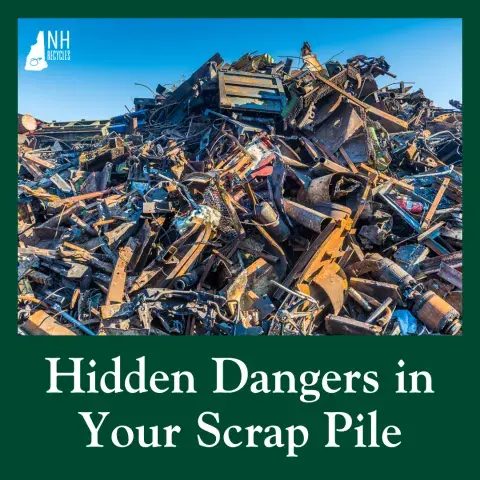
A Critical Safety Alert for Recycling Facilities
Scrap metal recycling is an important source of revenue for many transfer stations, transforming discarded materials into valuable resources. However, these piles can also carry significant dangers if certain items are not properly identified and removed. Fires and explosions are a real threat, capable of causing extensive property damage, severe injuries, and even fatalities. To safeguard personnel and property, it's crucial for all recycling operators to be vigilant for the following items that can turn a routine scrap pile into a hefty fine or much worse!
The Silent Threats: Batteries, Fuels, and Explosives
Many everyday objects contain hidden energy sources or volatile materials that become extremely dangerous when subjected to the pressures and temperatures of a scrap yard.
Items with Rechargeable Batteries: The Lithium-Ion (Li-ion) Menace
These days, it seems like everything is powered by rechargeable (Li-ion) batteries. While incredibly efficient, they pose a serious fire risk in scrap piles. When damaged, punctured, crushed, or exposed to heat, Li-ion batteries can undergo "thermal runaway," a rapid and uncontrollable increase in temperature that can lead to intense fires and even explosions. These fires are notoriously difficult to extinguish, and can even reignite minutes or hours later! A recent fire at a scrap metal recycling facility cost over $7 million in damages.
Things to look out for:
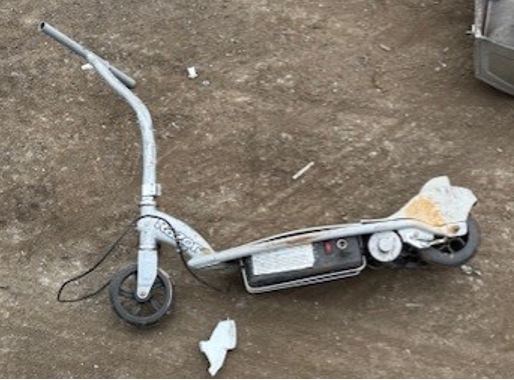
Scooters (pictured above) & Hoverboards: These popular personal transporters are packed with high-capacity Li-ion battery packs.
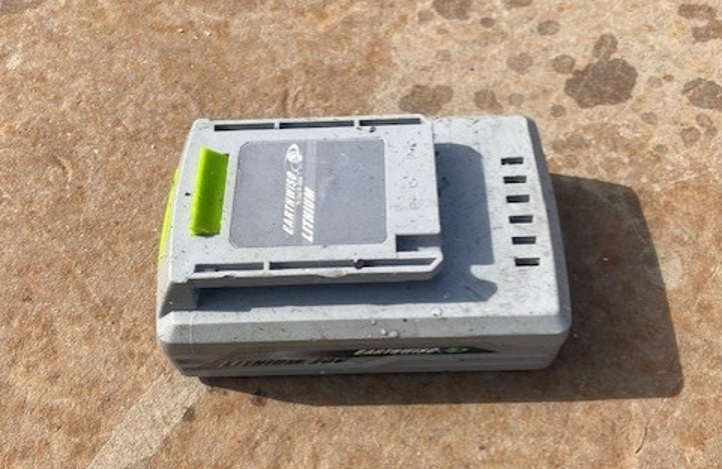
Battery-operated power tools: Cordless drills, saws, and other tools often contain powerful detachable Li-ion battery packs (pictured above).
Battery-operated weed trimmers, chainsaws, etc.: The increasing popularity of cordless outdoor power equipment means more Li-ion batteries entering the scrap stream.
Battery-operated vacuums and mops: Household cleaning appliances are another common source.
Electronics: Laptops, cell phones, tablets, and other electronic devices all contain Li-ion batteries and must be removed before processing.
Items with Lead-Acid Batteries: Corrosive and Explosive Potential
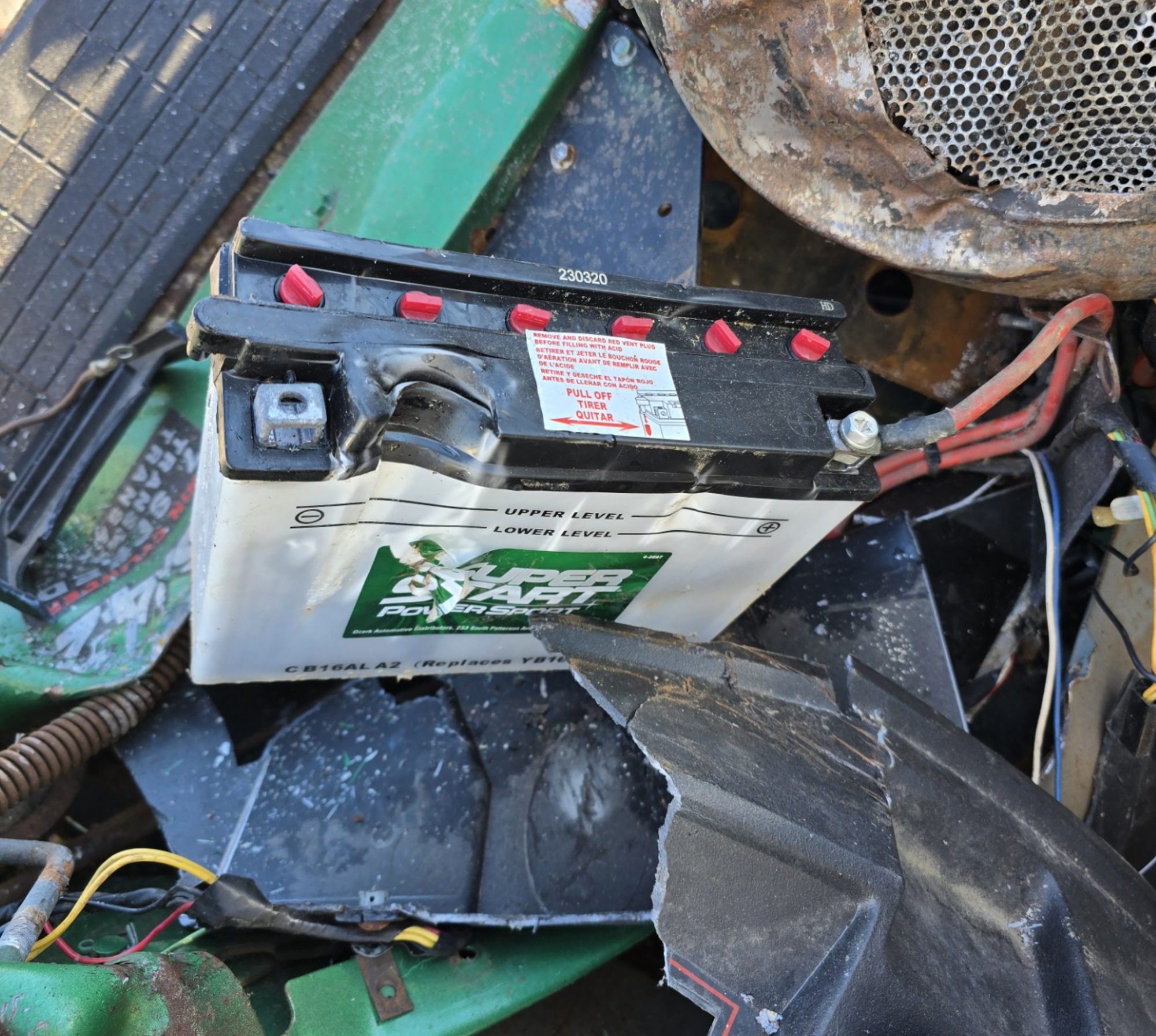
Lead-acid batteries, while less prone to the dramatic thermal runaway of Li-ion, still present significant hazards. They contain corrosive sulfuric acid and can release flammable hydrogen gas, especially if damaged or charged improperly. This gas, if allowed to accumulate, can ignite and explode.
Watch out for:
Ride-on Lawn Mowers: The primary power source for these machines is almost always a lead-acid battery.
Scooters: (Yes, scooters again!) Some larger or older scooters may utilize lead-acid batteries.
Battery Backups (UPS systems): Uninterruptible power supplies, common in homes and offices, typically house lead-acid batteries.
Battery Booster Packs: Jump-starting equipment often contains sealed lead-acid batteries.
Items with Oil and/or Gas: Flammable Fuel Risks
Any item designed to run on fossil fuels carries the inherent risk of containing residual oil or gas. These flammable liquids and vapors can ignite from sparks, friction, or heat generated during scrap processing, leading to fires and explosions.
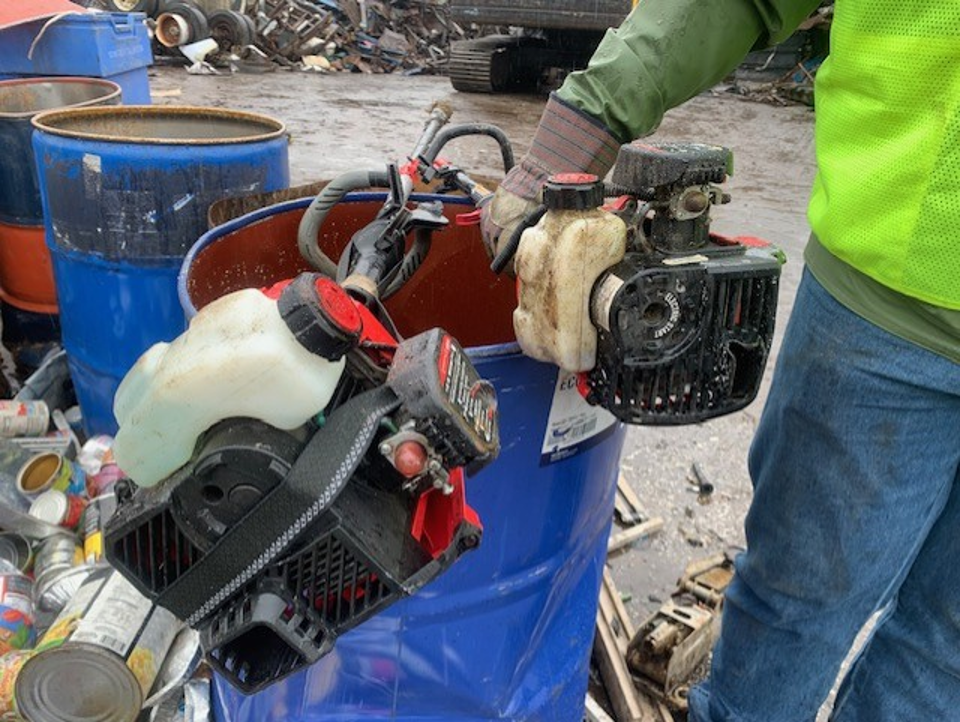
Thoroughly inspect:
Lawnmowers: Both walk-behind and ride-on mowers will have fuel tanks and oil sumps.
Weed trimmers: Small gasoline engines are common in these tools.
Chainsaws: Another common gasoline-powered outdoor tool.
Leaf Blowers: Many leaf blowers are gas-powered.
Snow Blowers: Essential for winter, these machines also run on gasoline.
Generators: Portable and standby generators contain fuel tanks and oil.
Other Critical Hazards: Hidden Ignition Sources and Explosives
Beyond batteries and fuels, several other items can pose severe risks:
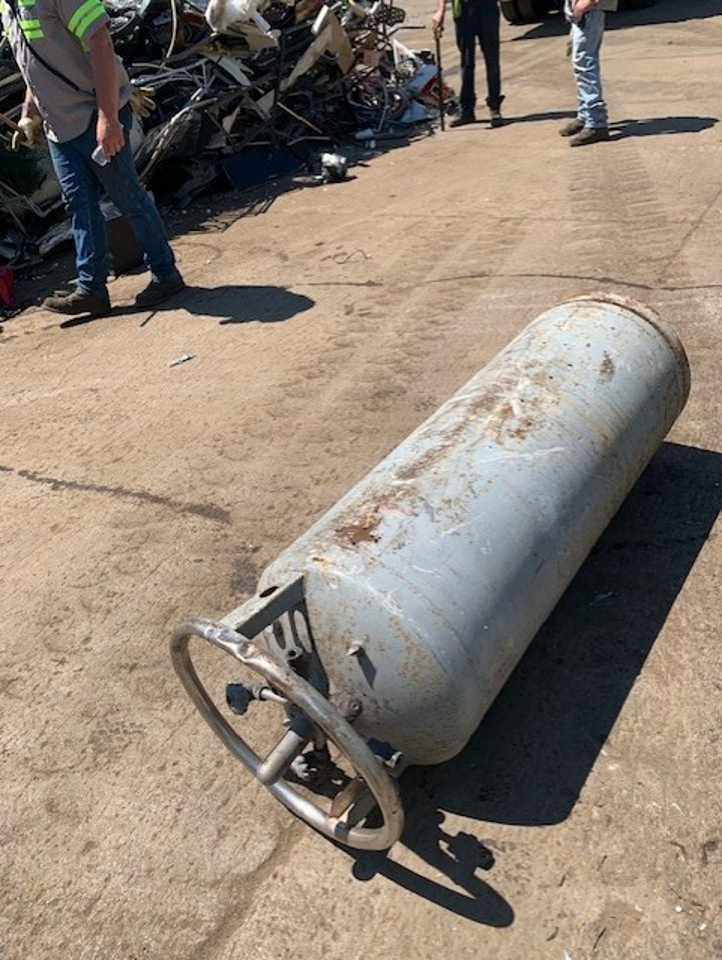
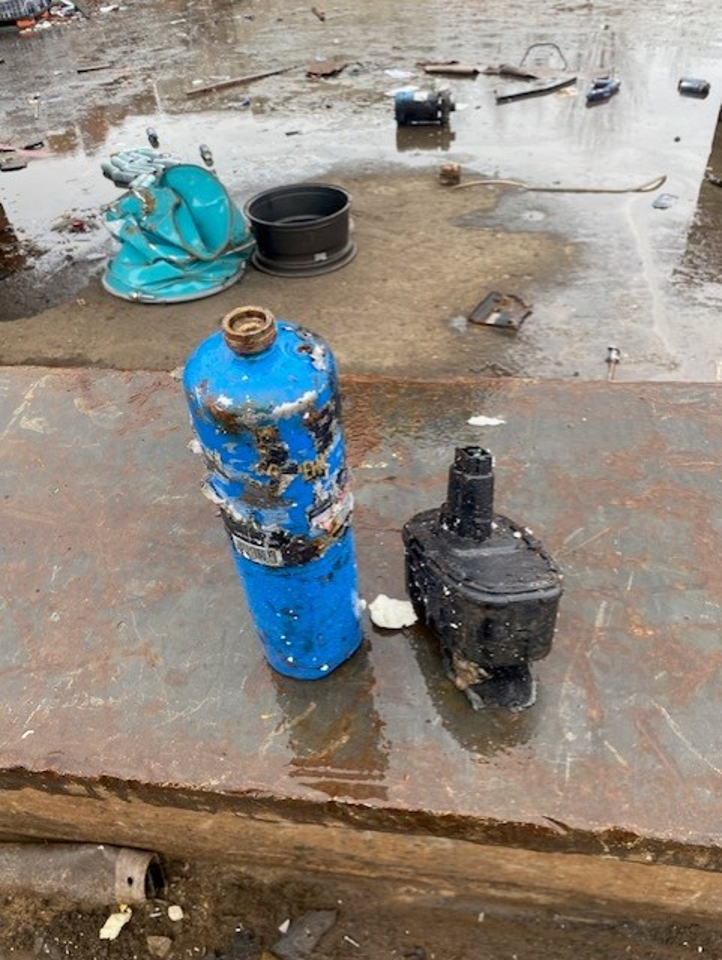
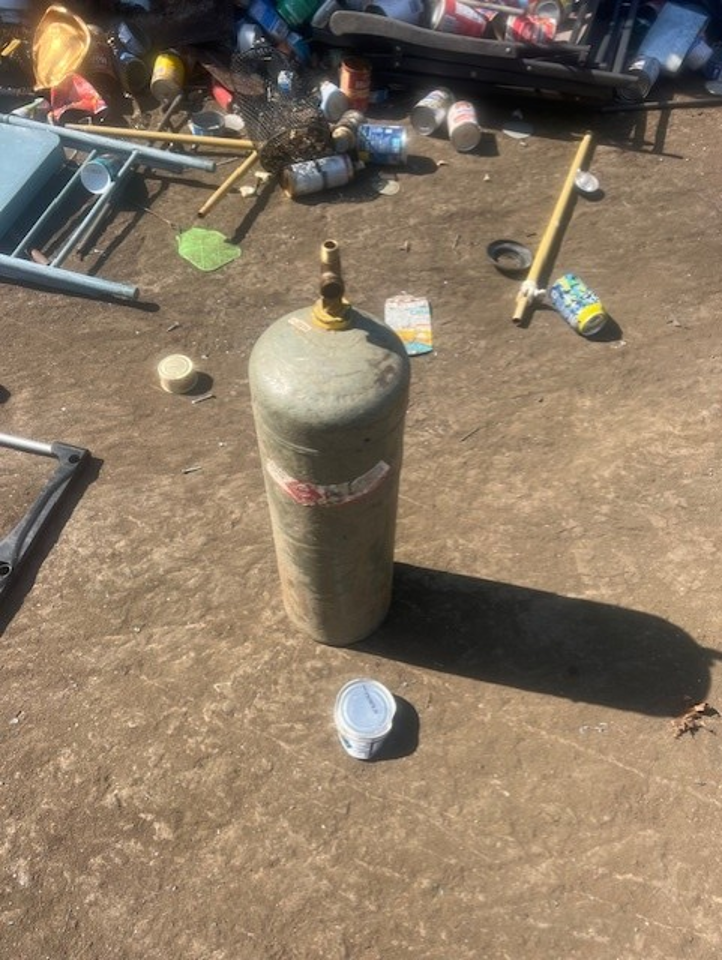
Propane and Oxygen Tanks (pictured above): Even "empty" propane tanks can contain residual gas under pressure. If a tank's integrity is compromised during processing (e.g., crushing or cutting), the escaping gas can ignite, leading to a powerful explosion. This applies to all sizes, from large grill tanks to small, disposable camping canisters. Never assume a tank is truly empty.
Ammunition: Live ammunition, even old or seemingly inert rounds, can detonate under pressure, impact, or heat. This is an extremely dangerous scenario that can cause serious injury or death. Unspent ammunition should never enter the scrap stream.
Ignitors on Gas Grills (please remove battery): Many gas grills use a simple AA or AAA battery to power their electronic igniters. While small, these batteries can still contribute to a fire hazard if not removed.
Vigilance is Key: A Call to Action for Operators & Residents
The responsibility for keeping visitors, operators, and scrap metal recyclers safe is the responsibility of every individual involved - from the residents who are bringing your items to your recycling center or transfer station to the operators handling the materials. The next time you are ready to bring a load of scrap to your facility or are working at your transfer station, take an extra minute to make sure you have removed all hidden dangers from your scrap pile - that mean NO batteries, NO gas or fuel, and NO propane tanks!